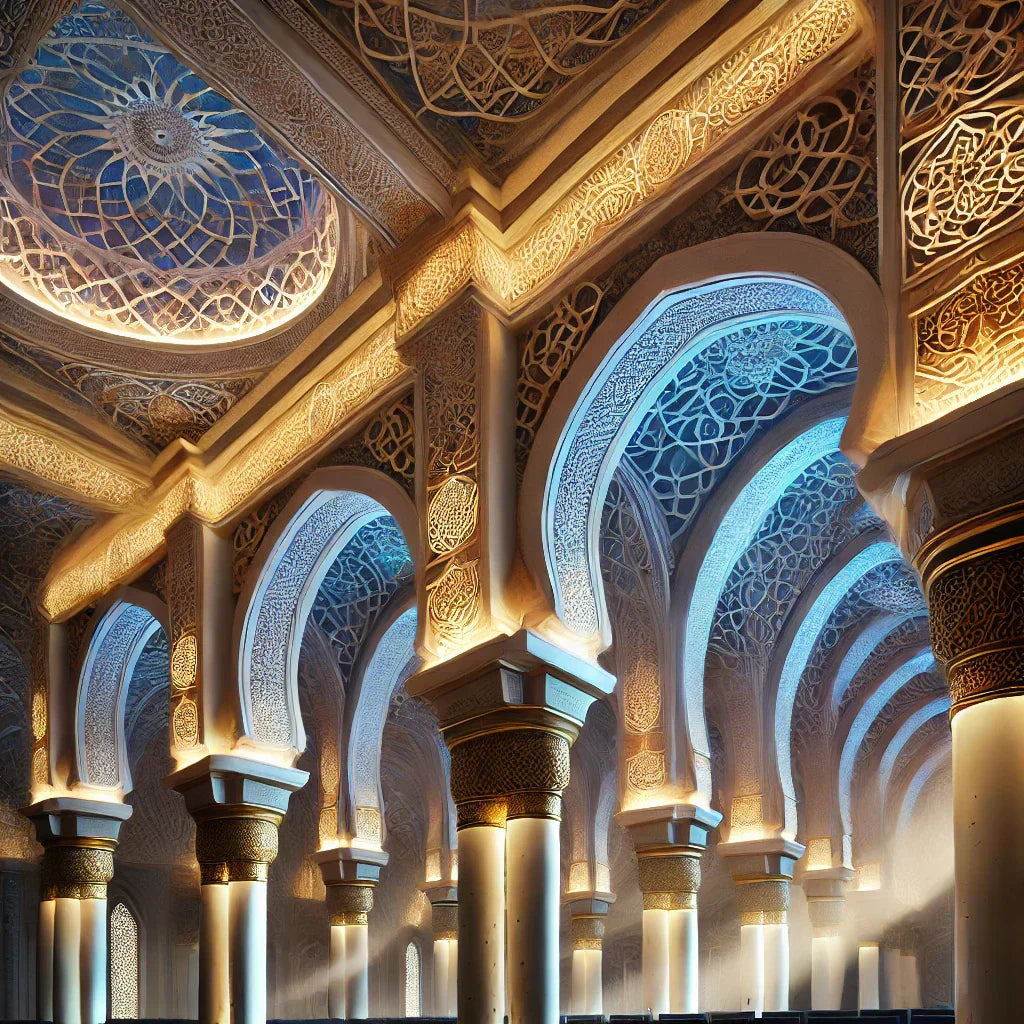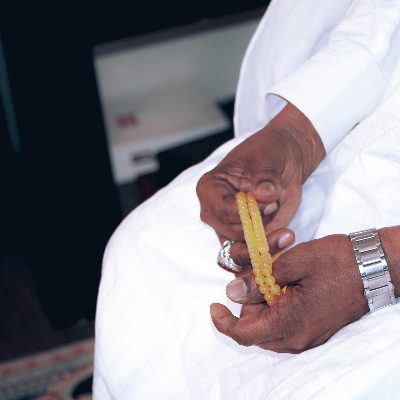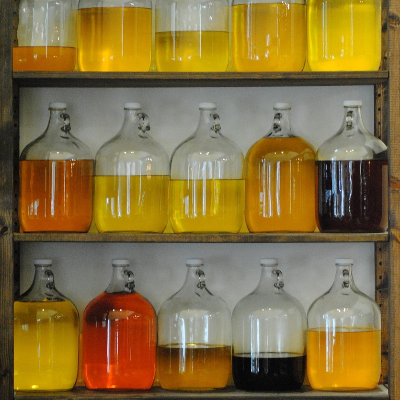Menu
-
-
F.A.Q
- How to identify genuine agarwood chip, natural or cultivated
- How to identify oil injection / absorption fake agarwood beads
- How to know if there are more than one oil in your oil
- How to make your wood bracelet or mala darker
- How to tell if an Agarwood bead sinks WITHOUT sinking it under water?
- How does back flow incense work and how do you burn it?
- Where to start if you don't know what agarwood is ?
- Why are you losing money if you buy seeds and plants?
- Which agarwood incense should I choose?
- Frequently Asked Questions
- Agarwood Related Articles
- Shipping
-
SHOP - Agarwood
-
SHOP - Other Fragrant Wood
-
SHOP - Incense Holder and Burner
-
- FREE Oud Oil guide
- Testimonials
- "Why did you buy this?"
- Contact us
- About Us
- +61430284329
- Login
-
English


The Use of Oud in Islam: Daily life, praying, marriage and funeral
Table of Contents:[hide]
By Abraham and Trent
Allah’s Messenger was quoted by Abu Huraira describing Paradise where, among many wondrous things, agarwood would be used in their incense burner (López-sampson and Page 2018). This is because the scent of Oud is described as “the scent from heaven”. Not only does it smell divine, but also it is spiritual for many Muslims (and many other religious and non-religious people) for many centuries. Today, we will discuss the use of Oud in some Muslim communities.
Daily life: Oud in the Islamic World
A trade associate of mine, Idrees, is a Muslim who uses Oud in his daily life.
Early morning before the sunrise, around 4 am, he wakes up and performs Fajr. He usually heats Agarwood chips when he prays. He says the scent is awakening helps in his spiritual and ritual process.

He said perfumery has a vital role in prayer practices in Islam. Muslims enjoy burning incense and bakhoor during prayer. They can do it in the mosque or at home.

When he works during the day, he wears Oud oil. It is convenient because he does not need to burn anything to create the aroma he usually uses to perform the Dhuhr prayer.
He has a rare collection of Oud oil. These oils are no longer in production because gathering Agarwood chips to distil is challenging. Wild Oud does not work in the long run because it is not sustainable. So Idrees chooses cultivated Oud instead.
He also uses an Agarwood Tasbih to pray for one reason. Rubbing his thumb against the beads many times will create friction. This friction will heat up the beads, making the scent molecules stick on his thumbs. When he moves his thumb to his nose, he enjoys this subtle aroma from the bead.

He says when Agarwood Tasbih is unavailable, some Muslims will use Agarwood oil to rub on their prayer beads to create the aroma before reciting the Quran.

When he visits the mosque, he either smokes his clothes with Agarwood chips or perfumes them with Oud oil.
Oud in Mecca

In Mecca, the holy city of Islam, the use of agarwood incense and agarwood oil is quite common among Muslims. Agarwood, also known as oud or aloeswood, is a highly valued aromatic resinous wood that has been used in various cultures, including the Islamic tradition, for centuries.
In Chapter 11 ‘Beyond Words’: Moroccan Pilgrims’ Narrations about Their Ineffable Hajj Experiences through Stories about the Senses, Al-Ajarma described:
The conversation partner also spoke about presenting fragrances as gifts from Mecca, such as scented bricks, bukhūr, combined with musk or agarwood, ʿūd (oud) , as well as perfumes crafted from musk, ambergris, and Aquilaria. These offerings are frequently given to loved ones and friends, highlighting the communal aspect of sharing the Hajj experience with those back home. Hassan, for instance, shared that he brought aromatic perfumes for his family members and some for his personal use. He emphasised that the scent reminded him of his time in Mecca, mentioning
He first encountered the aroma of ʿūd (Oud) at the Grand Mosque of Mecca, where it is routinely used... He was captivated by the fragrance... He subsequently noticed it in many other mosques he visited in Mecca and Medina. It is a scent that lingers... He purchased some for himself and additional perfumes as gifts for his siblings to bring home.
On various occasions, one could encounter the scents of ʿūd (Oud) and bukhūr (Bakhoor) in Moroccan homes. Sometimes, it was burned to eliminate the odour of cooked meals, but more frequently, it was used to enjoy the soothing fragrance simply. For pilgrims, these scents occasionally rekindled and facilitated connections and recollections forged during the pilgrimage, allowing the experience to be retrieved more fully from the depths of their memory.
From that I have asked some of our Muslim friends, and they shared with me how Oud chips and oils are used in Mecca. If you are a Muslim, you may already have experiened the below
- When Muslims visit Mecca, they love using agarwood oil as a captivating personal fragrance or to add an enchanting aroma to their clothes. The rich and alluring scent of agarwood makes it irresistible and is considered a prized possession.
- At the heart of the grand mosque in Mecca lies the Kaaba, which is regularly cleaned and perfumed. Agarwood incense plays an essential role in this process, creating a luxurious, spiritual atmosphere that enchants and uplifts the soul.
- Muslims often burn agarwood incense to bring a serene and divine ambiance to their daily prayers or Quran recitation. The soothing fragrance of agarwood not only enhances the overall worship experience but also improves focus and concentration during prayer.
- The tradition of gifting agarwood incense and oil among Muslims is a testament to the warmth and generosity that this exquisite fragrance brings. When visiting Mecca, Muslims often exchange agarwood products with friends and family, creating a bond of friendship and unity inspired by their shared love for Islam.
- Agarwood products are particularly cherished during the annual Hajj pilgrimage and the lesser pilgrimage, Umrah. Pilgrims use agarwood oil and incense to perfume their simple white garments, known as ihram, and as personal fragrances. This aromatic ritual helps them feel spiritually prepared and connected during the sacred rites and rituals of Hajj and Umrah.
Oud and Friday Prayer in Islam

Volume 2, Book 13, Number 8:
Narrated Salman-Al-Farsi:
The Prophet (p.b.u.h) said, "Whoever takes a bath on Friday, purifies himself as much as he can, then uses his (hair) oil or perfumes himself with the scent of his house, then proceeds (for the Jumua prayer) and does not separate two persons sitting together (in the mosque), then prays as much as (Allah has) written for him and then remains silent while the Imam is delivering the Khutba, his sins in-between the present and the last Friday would be forgiven."
Abraham, the founder of Simple Pleasures, says:
There is no denying how ingrained Oudh and perfumery are in Middle Eastern culture and have stayed around for 3,000 years. The traditional use, combined with spiritual encouragement, is probably why the Oudh industry in the Middle East has constantly been growing.
Fridays have a special place for each Muslim. Just as you hear people dressing up in their “Sunday’s best”, the same applies for Friday prayer in the Islamic world (Islamic Community). Whilst it is not compulsory to wear fragrances as part of worship, it is very strongly recommended to put on your best (including to perfume one’s self) before Friday prayers if one gets a chance. It is not uncommon to see bottles of Oudh, Amber or other types of perfumery either at the entrance or a special area at the front of the hall for anyone to use.
For a Muslim, a mosque is referred to as “The house of God” where Angels come to attend and join in prayers. It makes perfect sense to perfume oneself in a good fragrance in the presence of God and the Angels.
There is no guide to Muslim perfume or the type of perfumery that Muslime should wear. The traditional favourites are Amber, Musk, Oudh, and a combination of each in oil form. Oudh stands out for its scent projection in all forms. Then there is the ‘Dry scenting’ process through a charcoal burner, where one applies perfume through smoking themselves.
To this day, charcoal incense by burning bakhour(scented wood)/Oudh is the favourite means for purifying both open and closed spaces. At a Muslim place of worship (Masjid), the scent penetrates deep into the carpet and can stay keep a place well scented for days. Bakhour is good, but if you really mean business in the Middle East, you’d burn a good quality Oudh for yourself and your guests.
Traditionally, it is not uncommon to see a charcoal burner with Oudh/Bakhhor being passed around to each guest as a sign of generosity during gatherings. Arabs will literally fumigate themselves with fantastic Oudh smoke. The scent is so penetrating. It stays on clothing for days, and one can usually sense someone’s ‘Oudh Trail’ even when walking in a crowded bazaar. Apart from offering charcoal incense to guests and everyday use, a decent amount of Oud/Bakhour smoke is spread around and used at the Masjid or prayer hall. Upon entering the prayer space, you are greeted with a wonderful smell that clears the mind and helps you wind down when you are engaging in worship, helping further tie you down to a state of ‘Khosho’, which can be referred to as the religious awareness in the present moment. Furthermore, the Quran extends this to include mosque visits outside Friday [Al-Araaf – 31] to highlight bringing out your best.
Personally, I also see Oudh as a lifestyle. Middle Eastern perfumery is all about projection and longevity. Usually, I would put the oil around pulse points, outside or inside wrist or palms, so the scent moves with me as I move. I'll rub it through my hair or over the beard to treat myself on extra special occasions. You can seriously look good and feel good with perfumery, and Oudh is something that I use to take my game to the next level. So why not give this ancient wood a try?
The Emperor - (Bakhour) By Abraham
Oud and marriage
Agarwood plays a significant role in Islamic marriage celebrations due to its exceptional fragrance and cultural importance. During the wedding festivities, particularly at a special women's night, the bride arrives in a procession, often accompanied by attendants carrying censers filled with burning agarwood. The fragrant smoke fills the air, creating a unique atmosphere and symbolising good fortune for the bride's future.

Guests may also be gifted with perfume oils, a gesture that demonstrates the inviting family's generosity and personal preferences.
The bride's assistants may carry Agarwood burning censers during a Muslim marriage celebration to create an unforgettable atmosphere. The aroma of these censers will create an ambient, smudging the area with positive energy and blessing the married couple.
The host also provides attar or oud oils in small, intimate celebrations with fewer guests. This is a great way to build friendships through aroma.

The use of high-quality perfumes, such as those containing agarwood, signifies the respect and value attached to spiritual encounters or guests. Agarwood is particularly favored because it is considered the most prestigious of perfume ingredients. Exceptional agarwood sticks or products based on agarwood are often presented, while other types of perfumes may be used as additional or alternative options depending on individual preferences and circumstances.
To enhance the presentation, special perfumery dishes are used, including sprinklers for rosewater and censers for burning agarwood or incense mixtures. High-quality censers, often featuring intricate metal carvings, are imported from abroad. However, locally crafted censers made from clay, often decorated with colorful designs, are more commonly used. Another essential item is the flacon for storing perfume oils, such as agarwood oil.
Overall, agarwood's role in Islamic marriage ceremonies highlights its cultural significance, its exceptional fragrance, and its ability to convey respect and reverence.
My trade associates have mentioned to me several uses of Agarwood in an Islamic wedding.
-
Agarwood chips could be used in scenting the wedding venue: The aromatic qualities of agarwood can be used to create a pleasant and inviting atmosphere at the wedding venue, as it is often burned as incense.

-
If chips are not available, with the help with ultrasonic diffusers, difussing Agarwood essential oil is a good alternative, especially in some venue that restrict the use of charcoals.
-
Perfumes and fragrances: Agarwood is commonly used as a base ingredient in traditional perfumes and fragrances in Islamic culture. The bride and groom may use agarwood-based scents on their wedding day as a sign of luxury and elegance.
-
Gifts: Agarwood, due to its rarity and value, can be presented as a gift to the bride, groom, or their families during the wedding celebration.
Oud and funeral

In some Muslim communities, people wash the corpse several times. Some people may perfume the corpse by applying musk, sandalwood and Agarwood directly on the body and the clothes. Finally, a person will smoke a shroud with Agarwood and wrap the corpse. The Muslim Creed Shahada, “There is no God but Allah, and Muhammad is his messenger”, is written on the forehead with Oud oil to assist the deceased in passing through the threshold of the afterlife.
After eight days, relatives and friends gather in the bereaved family's house for a funerary ritual. The ritual expresses grief and asks for forgiveness from Allah’s mercy for the deceased person.
The unhappy mood is reduced by the continuous burning of Agarwood and bunches of basil which may be handed to the guests. As the ritual goes on, the atmosphere is enhanced. While burning agarwood incense mixture, the community of women recite biographical poems and prayers to commemorate Prophet’s life.
After the ritual ceremony has been completed, the women are offered a selection of perfumes to show respect and hospitality. Depending on the hostess, these may include incense, oils, or creams Dr Jung Dinah (2011).
Agarwood: a gift idea for Muslims
Sometimes it is hard to gift something to someone as you are unsure what the recipient's preference is. Usually, the recipient will accept your kindness, but the gift that you give will remain untouched or wasted.
But if you provide a small vial or bottle of Agarwood (Oud) oil, your loved one could use it daily as a perfume itself.
Or Agarwood chips which can be used in daily praying, something that the Prophet Muhammad (Peace Be Upon Him) personally love.
Do you have your oud ritual? Try them and see how you feel today.
Click here for Our nature Agarwood chips.
The Emptiness is loved by many Muslims.

Click here for our sustainable Agarwood (Oud) Oil from Southeast Asia.
Recommendation for all the products of Oud
For Bakhoor lovers who love scented smoke
Many Muslims love scented smoke, so they burn Bakhoor, a type of Arabian incense, to get this intoxicating fragrance. I have personally tried his Bakhoor blend - Amber and Sandal Bakhour, I would strongly recommend it.

Unlike other commercial shops that make big batches and focus on low cost, Abraham picks quality ingredients to make his Bakhoor mix.
When you burn his Bakhoor on the charcoal, you will experience rich woody sandalwood notes from resinous heartwood, the sweetness of frankincense resin and hints of different spices that is earthy and floral.
For Oud lovers who want to enjoy the fragrance of pure Oud oils
Aquilaria trees have been growing in many Southeast Asia countries for centuries. Due to the popular demand, wild Agarwood has been over-harvested.
Commercially, It has become rare for perfumers to use wild Agarwood because it is not a viable option. So growers like us start to grow Aquilaria trees on our private lands.
The smell of Agarwood is different for each region. Therefore, we network with other growers to trade their Aquilaria trees and oud oils.
At Grandawood, we have created an Agarwood sample set for our customers to experience the richness of these oils.
What Oud oils are favourite in the Middle East?
Many of Middle East people love barnyards and pungent woody smell at first, then they expect the aromatic notes dried down to become floral, sweet, and woody. We have If that is what you want, try our Middle Easterner Oud oil.

Oud perfume
If you have not experienced Oud before, you will feel its price is high. Besides, if you try oud the first time, you may also feel pure Oud oil is too strong for you, and that is ok.
I would suggest you try the Oud perfume instead.
Oud perfume is perfume made with Oud and other ingredients such as jasmine, patchouli, neroli, rose and so on.
It is more approachable for new Oud lovers. And it does not have that high price tag.
As a general guide, I would recommend you start with the Oud perfume (oil based, alcohol-free available), and then if you love it, you can try pure Oud oil.
Grandawood Oubergris featured Agawood oil and Ambergris
Oud and Ramadan

Ramadan is the ninth month of the Islamic lunar calendar and is observed by Muslims worldwide as a month of fasting, prayer, reflection, and community. During Ramadan, Muslims fast from dawn until sunset, refraining from consuming food, drink, and other physical needs. The primary purpose of fasting is to purify the soul, strengthen self-discipline, and foster a deeper sense of empathy for the less fortunate.
Each day, Muslims wake up early to have a pre-dawn meal called suhoor, which provides them with energy to sustain them through the day's fast. The fast is broken at sunset with a meal called iftar, often beginning with the consumption of dates and water, followed by a larger meal with family and friends. Ramadan is also a time for increased prayer, reading the Quran, and engaging in charitable acts.
Agarwood, also known as oud, is a valuable and fragrant wood that comes from the heartwood of Aquilaria trees. When the tree is infected with a specific type of mold, it produces a dense, dark, and aromatic resin. This resinous heartwood is highly sought after for its distinctive scent and has been used in traditional medicine, incense, and perfumery for centuries.
During Ramadan, Agarwood plays a significant role in various Muslim traditions and practices. Some people use agarwood to make incense or perfumes, which are then used to cleanse and purify their homes or to create a welcoming and calming atmosphere during evening prayers. The rich and warm scent of agarwood is thought to help focus the mind during prayer and meditation, allowing for a deeper spiritual connection.
One such story revolves around a young Muslim man named Yusuf. He lived in a small village in Kampung Lawas Sarawak, Malaysia and came from a family of modest means. Despite their financial struggles, Yusuf's father had managed to save up and buy a small piece of agarwood chip for the family to use during Ramadan. Each night, after breaking their fast with iftar, Yusuf's father would light a small piece of agarwood, filling their home with its unique and soothing fragrance.
As Yusuf grew older, he began to appreciate the power of this simple yet meaningful family tradition. The aroma of agarwood would permeate the air, instilling a sense of peace and tranquility in their home as they gathered to pray and read the Quran. The scent served as a reminder of their dedication to their faith, and it became a source of strength and motivation for Yusuf in his spiritual journey.
Years later, when Yusuf moved away from his village to pursue higher education, he carried the tradition of using agarwood during Ramadan with him. It became a symbol of his connection to his family and their shared faith, even when he was far away from home. Through the simple act of lighting agarwood, Yusuf found comfort and reassurance in his beliefs, allowing him to stay true to his faith despite the challenges and temptations he encountered in the modern world.
Ramadan is a time for spiritual growth, self-discipline, and reflection for Muslims worldwide. The use of agarwood during this holy month serves as a means to enhance the spiritual experience, create a serene atmosphere, and connect people to their faith and family traditions. The story of Yusuf and his family's use of agarwood during Ramadan highlights the deep emotional and cultural significance that this fragrant wood holds within the Muslim community.
If you are in Australia and want to experiene aromatic Agarwood chip, try our Agarwood chips here
1 Response
Leave a comment
Comments will be approved before showing up.
Also in News

What is Tasbih? The Deep Meaning of Subhan Allah and the Role of Prayer Beads
November 09, 2025 4 min read






Madina Perfumes
November 26, 2023
Your blog on ‘The Use of Oud in Islam’ is a comprehensive and culturally enriching exploration. It beautifully details the significance of oud in various aspects of daily life. Thanks for this insightful and educational journey!